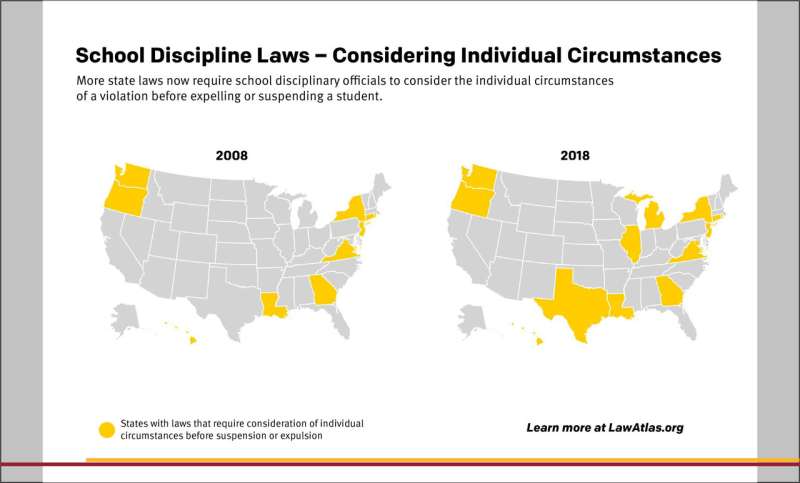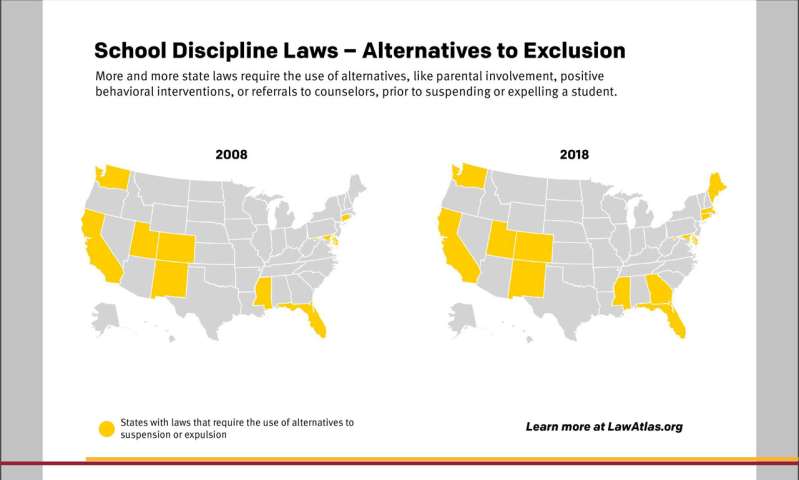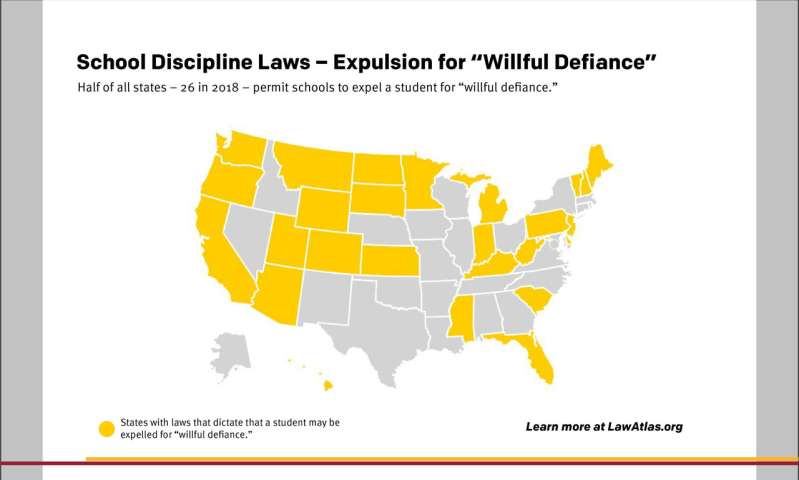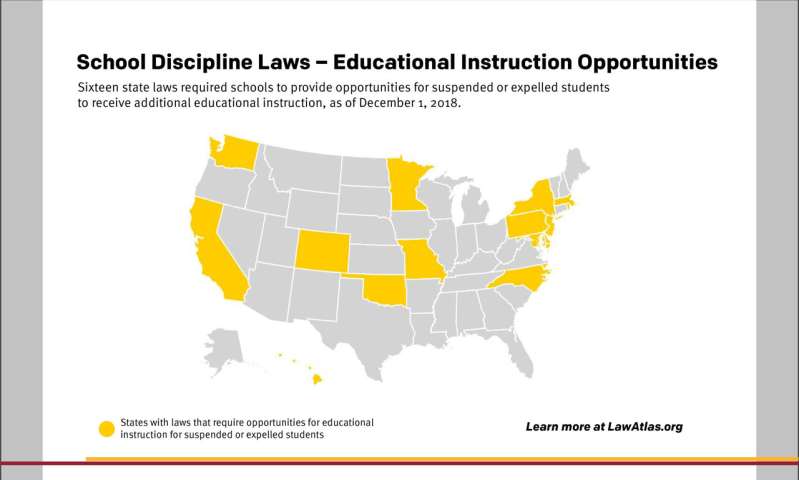New legal data traces almost 11 years of state 'zero tolerance' school discipline policies

A new legal dataset published on LawAtlas.org today shows shifts and trends in state-level "zero tolerance" or exclusionary school discipline laws, focusing on how the laws regulate expulsion and suspension.
The dataset tracks nearly 11 years of school discipline and school discipline reporting laws—from January 1, 2008 to December 1, 2018. It particularly offers insight into a trend to reevaluate "zero tolerance policies," which can require school administrators to expel or suspend a student for specific conduct regardless of individual circumstance. These policies often disproportionately affect students of color, students with disabilities, and LGBTQ students.
The data show that the shift away from exclusionary discipline policies has progressed in some areas, but not others:
- Fourteen states in 2018 required school disciplinary officials to consider the individual circumstances of a violation before expelling or suspending a student, an increase from ten states in 2008.
- Thirteen states in 2018 required the use of alternatives, like parental involvement, positive behavioral interventions, or referrals to counselors, prior to suspending or expelling a student. This is an increase from 10 states in 2008.
- The number of states requiring schools to provide opportunities to receive educational instruction to suspended or expelled students increased from eleven states in 2008 to 16 in 2018.
- More states are exempting younger students from school discipline policies—six states in 2008 vs. 13 in 2018.
-

Thirteen states in 2018 required the use of alternatives, like parental involvement, positive behavioral interventions, or referrals to counselors, prior to suspending or expelling a student. This is an increase from 10 states in 2008. Credit: Temple University Center for Public Health Law Research, Policy Surveillance Program -

There are 26 states that permit expulsion for “willful defiance,” a broad and subjective offense that remains undefined in the law; an increase from 25 in 2008. Credit: Temple University Center for Public Health Law Research, Policy Surveillance Program -

The number of states requiring schools to provide opportunities to receive educational instruction to suspended or expelled students increased from eleven states in 2008 to 16 in 2018. Credit: Temple University Center for Public Health Law Research, Policy Surveillance Program
Meanwhile:
- There has been little change in the requirement by states that certain student conduct be reported to law enforcement—41 states in 2008 vs. 42 states in 2018.
- There are 26 states that permit expulsion for "willful defiance," a broad and subjective offense that remains undefined in the law; an increase from 25 in 2008.
"These data offer a nuanced look at the nature of exclusionary school discipline policies across the United States, and how they have changed—and not changed—in ways that may mitigate or increase disparities among some of the most vulnerable US students," said Adrienne Ghorashi, Esq., a program manager at the Center for Public Health Law Research, and the lead researcher on this project. "These data will be a useful resource for researchers, advocates, school administrators and others seeking to understand these policies and their impact on students."
The dataset was produced with funding from the Centers for Disease Control and Prevention to ChangeLab Solutions and the Center for Public Health Law Research.
More information: Policy Surveillance Program, Temple University Center for Public Health Law Research. "School Discipline Policies." May 7, 2019. lawatlas.org/datasets/school-discipline-policies


















